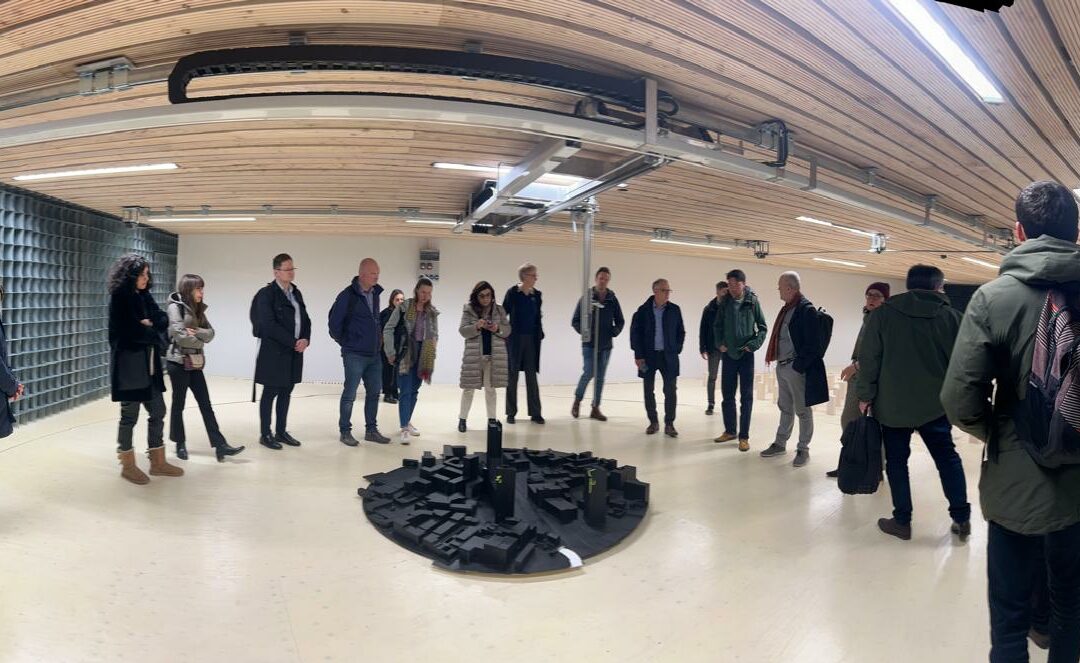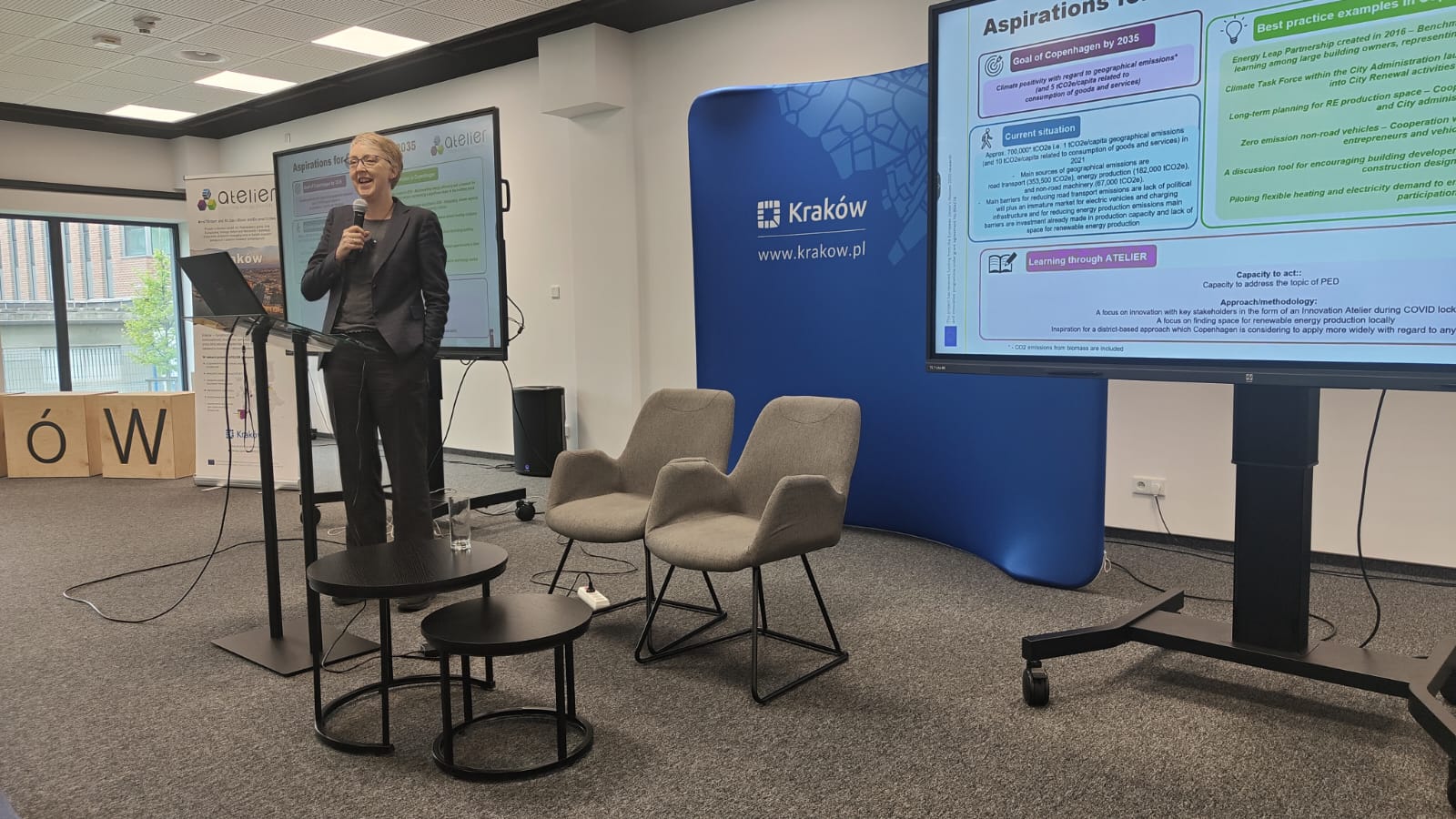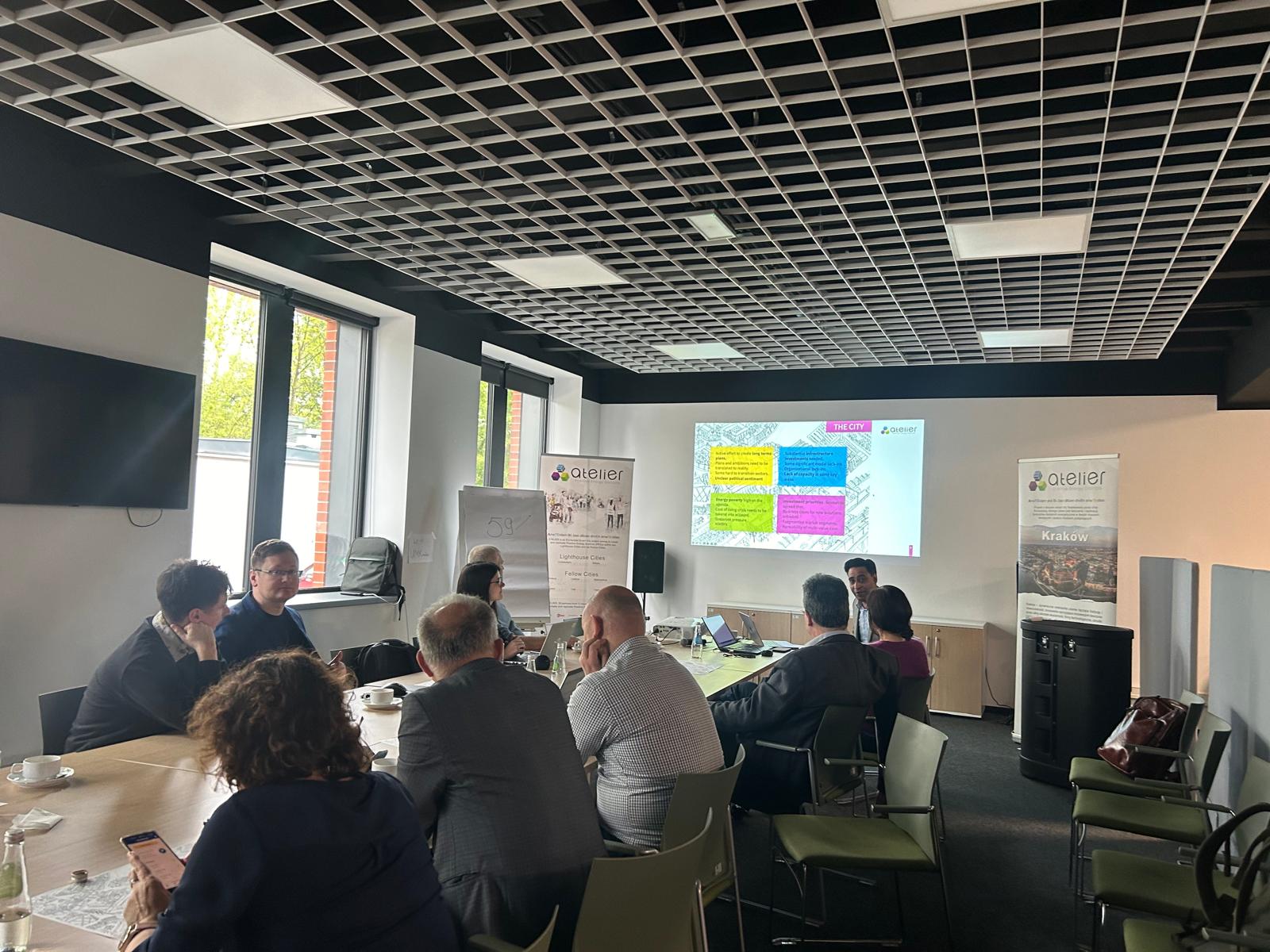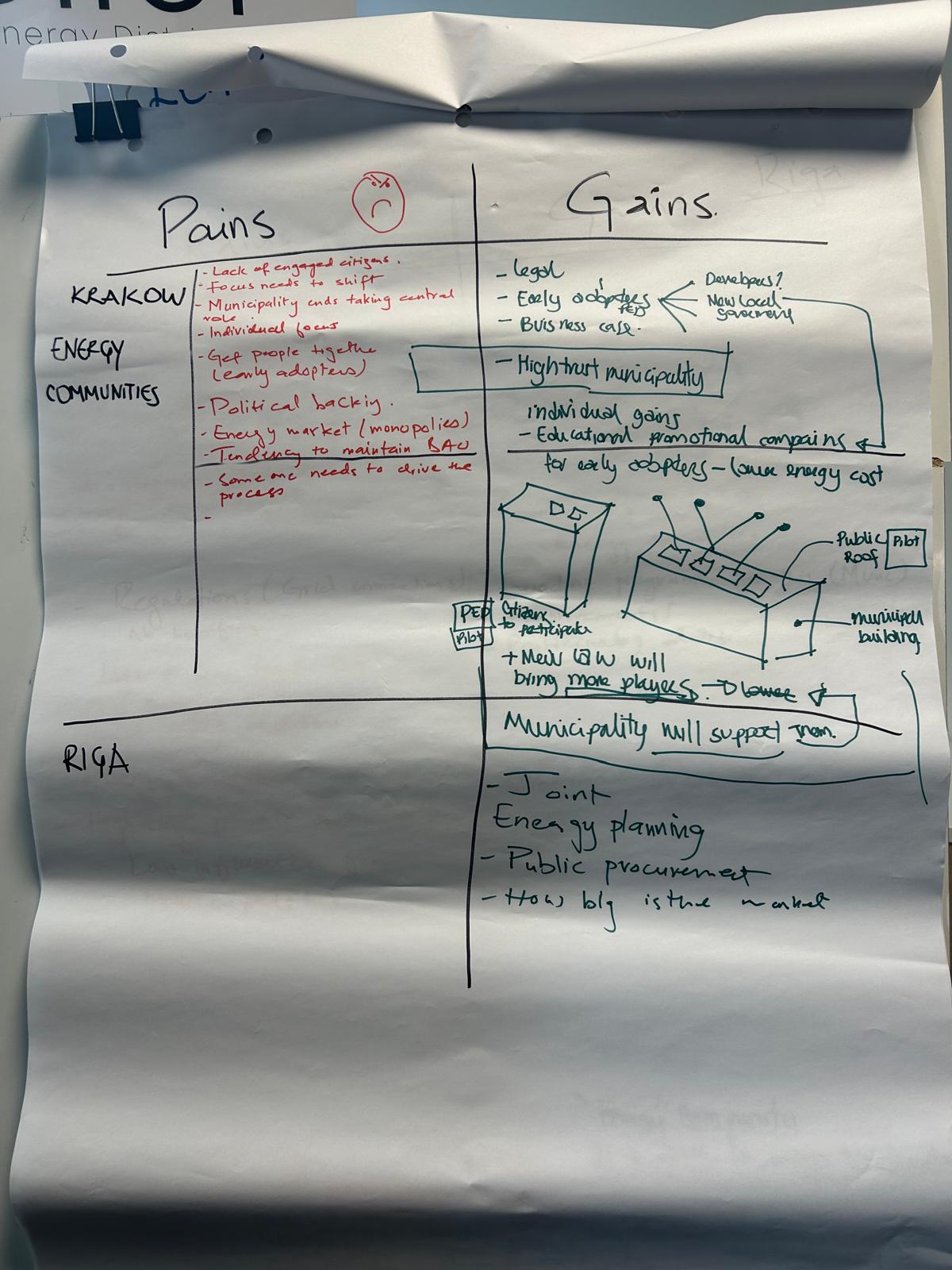In April 2024, the 5th ATELIER City Event took place in Krakow with various representatives of the project consortium as well as several local stakeholders. The focus of this internal meeting was on workshops for all participating ATELIER Cities to determine the different stages of development and progress our Fellow Cities and Lighthouse Cities are in.
For this, the first day of the event focused on presenting best practices related to inspiring climate actions, but also on climate policies and regulations, strategies and the question of financing these climate activities in cities. This was followed by two days of interesting and insightful exchange between ATELIER project partners through various workshops on different topics, ranging from Barriers for energy transition in context of historical cities and Heritage to energy as driving force for neighbourhood renewal.
Accompanied by a Q&A session, there were some questions on how energy sharing could be implemented in such a way that also lower income households could benefit from energy sharing and what role a municipality could play in sharing energy.
Following this discussion, another question was raised by the audience on how energy sharing can impact grid use and congestion, concluding through a joint discussion that energy sharing could in fact have a positive impact on grid use if it leads to more optimal local use of RES (Renewable Energy Sources). However, it could also increase grid use, depending on how energy sharing is implemented and on how sharing will lead or will not lead to behavioural change.
Another important topic discussed during the event was the question of financing climate activities within cities. To illustrate this, we approached this question by imagining a neighbourhood with a heat grid that has a shortfall of 30 million euros over 30 years, which led to the thesis proposing that this grid is so much more than just a heat grid and for that reason doesn’t have a shortfall. A heat grid can have positive effects on social cohesion, decreasing energy poverty, building and maintaining other infrastructures, and climate change adaptation and mitigation. Can these values bring in money to overcome the shortfall? To further confront the problem of financing a multifunctional heat grid, we can make use of a host of current financial instruments that can help out, while still considering that public and private parties must be willing to adjust to the reality of multifunctionality of projects.
Overall, the ATELIER City Event provided an excellent opportunity for mutual exchange and plenty of interesting sessions also covering additional topics such as scalability, the continuation of the Innovation Atelier after the project has ended as well as the link with city missions.
Authors: Eva Winters, Jurgen van der Heijden, TNO
Picture credits: ATELIER



